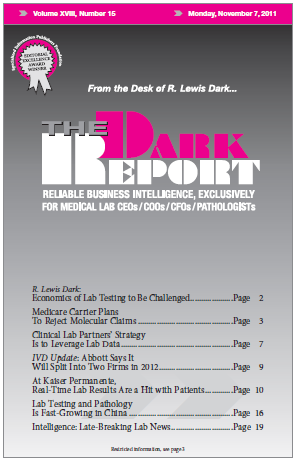CEO SUMMARY: It was record attendance at the major pathology congress which took place in Hangzhou, China, last month. Because of the ongoing growth of China’s economy, the demand for healthcare—and for high-quality clinical lab and pathology testing—is rising at an accelerated pace. During his visit to the pathology congress and Chinese hospital labs, your …
Lab Testing, Pathology Is Fast-Growing in China Read More »
To access this post, you must purchase The Dark Report.


